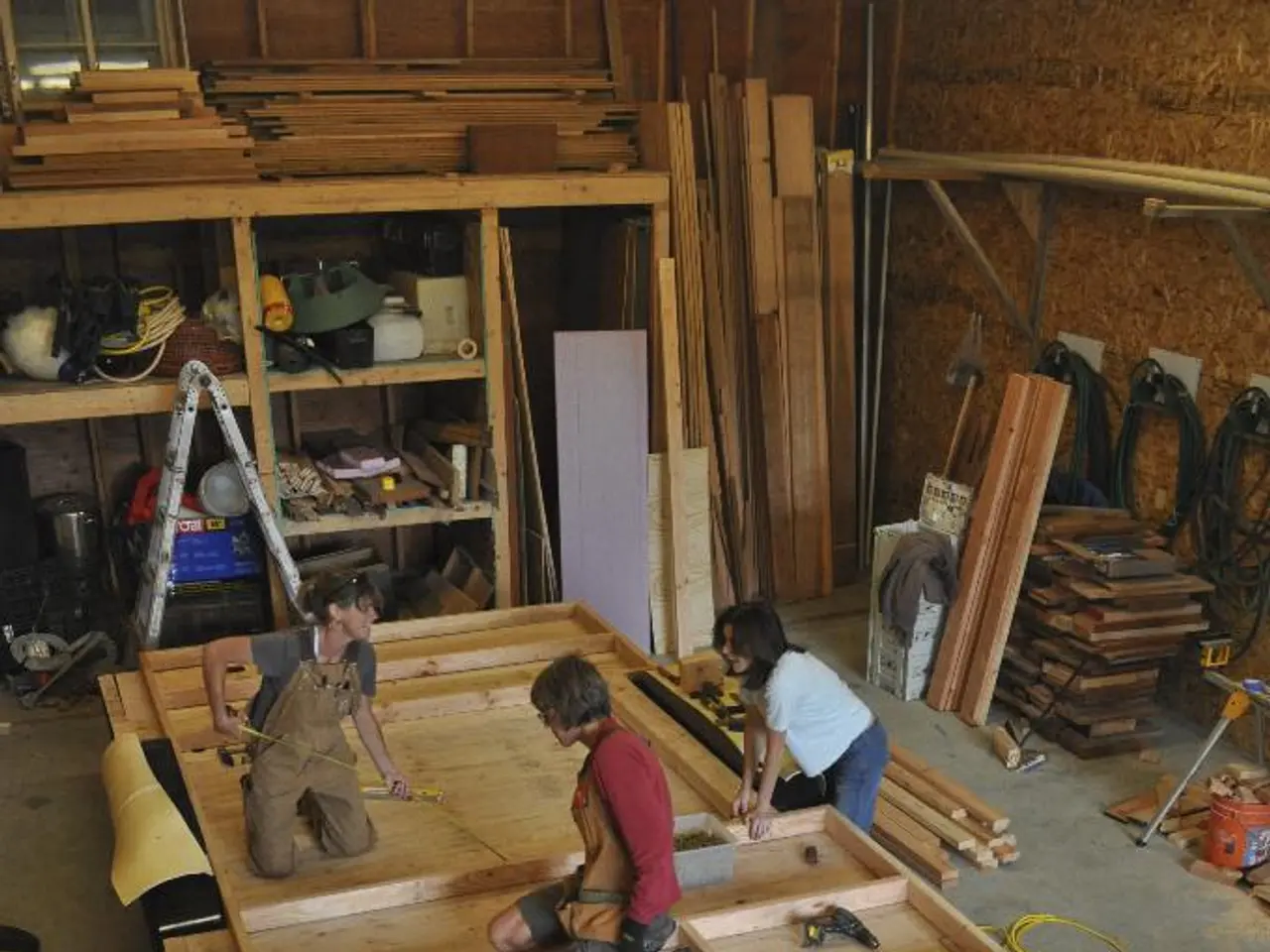Craftsmen's Guild Faces Crisis in Major Building Industry Struggle
In Dresden, the Chamber of Crafts has raised alarm bells about a potential implosion in the construction sector. Chamber president, Jörg Dittrich, urged swift political intervention on Monday, warning that if action isn't taken, the industry could be face a catastrophic crisis with layoffs and capacity cuts that could be irreversible.
The chamber's current economic survey paint a bleak picture. Forty-five percent of construction firms predict a drop in revenue in the coming months. One-third of firms in the sector are already contending with decreasing work orders. (dpa)
But it's not just Dresden that's bracing for a hard hit. The broader German construction industry is also staring at a crisis characterized by dwindling construction output, a substantial decrease in residential building permits, massive job losses, and acute labor shortages – with 81% of firms grappling to recruit skilled workers[1]. The sector's struggles are compounded by bureaucratic inertia and regulatory delays, leading to projects worth €1.6 trillion being stalled due to permitting bottlenecks[1].
To combat these issues, several national-level strategies have been proposed and implemented. One such initiative is the €500 billion infrastructure package announced in early 2025. This endeavor aims to inject much-needed capital into the industry, stimulating growth[1]. Streamlining building standards through initiatives like "Gebäudetyp E" is another approach projected to cut construction costs by about 20%, making projects more feasible and, potentially, speeding up approvals[1]. Efforts are also underway to tackle bureaucratic and permitting delays through digitalization and simplification of processes, although specific Dresden-centric policies are not detailed in the search results[1].
While the political response at the national level is crucial in helping Dresden's construction industry navigate the predicted downturn, no explicit Dresden-focused political actions were found in the current search results. At its core, the approach is to combine increased public infrastructure spending with regulatory simplification to reignite construction activity, preserve jobs, and address labor shortages in the sector.
In essence, the current political response to Dresden's construction crisis involves a large-scale infrastructure investment package and regulatory reforms aimed at reducing costs and bureaucratic hurdles. Together, they should help mitigate the predicted crisis[1]. So, keep your hard hats on, folks – the construction business is about to get a little rocky in Dresden, but hopefully, the right mix of budget and brainpower will help steer it through the storm.
The current crisis in Dresden's construction industry could expansion to other areas, potentially affecting the broader German finance and business sectors, given the interconnected nature of industries. To prevent a catastrophic crisis in the construction industry, swift political intervention, as suggested by the Chamber of Crafts, is crucial, considering the potential impact on the nation's economy.





